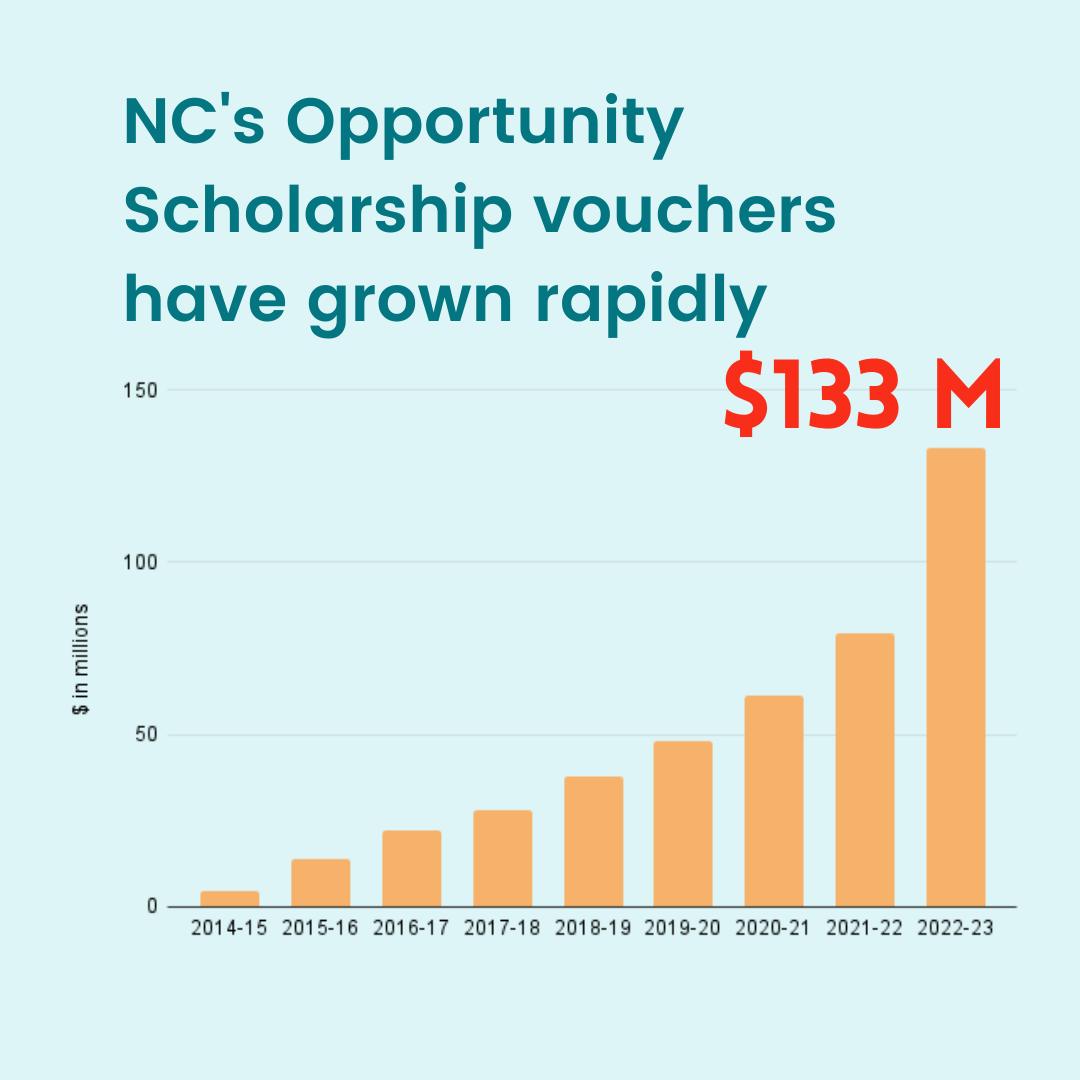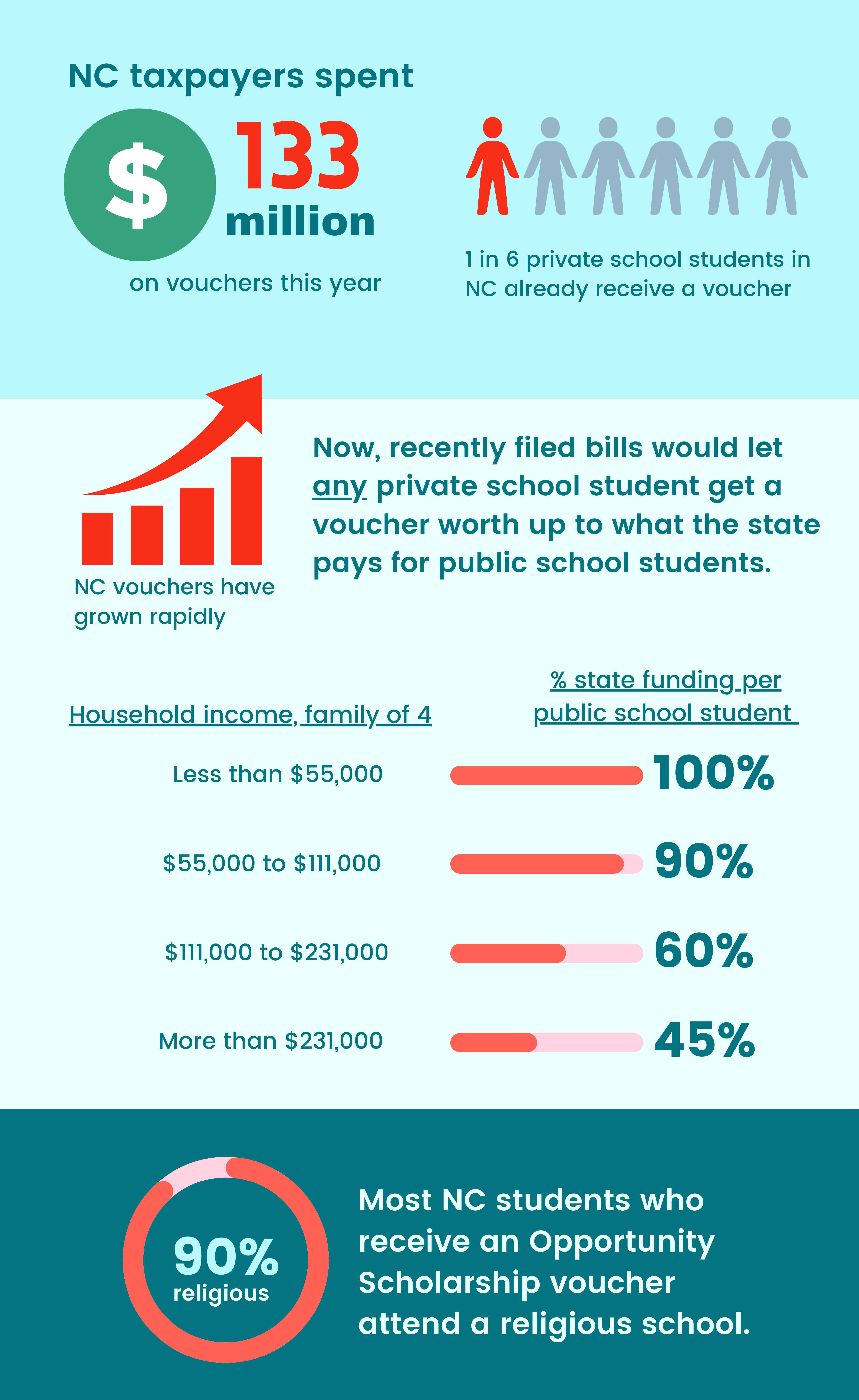By: Jordan Meadows
Staff Writer
The North Carolina Senate Appropriations Committee recently approved a bill that will provide hundreds of millions of dollars to the state’s private school voucher program. The move sparked heated debates between Democrats and Republicans, highlighting the sharp contrast in their perspectives on education spending priorities.
North Carolina’s cost-adjusted per-pupil funding level is $10,791, which is $4,695 lower than the national average. In terms of funding level, North Carolina is ranked 48th among all 50 states and D.C.
Republican Senator Michael Lee of Wilmington praised North Carolina’s Opportunity Scholarship program for its effectiveness. He credited Democratic Governor Roy Cooper for inadvertently promoting the program across the state.
Republicans emphasized the importance of providing all families with options for private education, particularly in light of the increased demand. Last summer, the General Assembly raised annual payments for vouchers and lifted income caps, resulting in overwhelming demand that exceeded supply. Almost 55,000 students remain on the waiting list, while nearly 16,000 join the program next year.
Republican leaders, led by Senator Lee, have proposed allocating over $270 million to clear the backlog and double the voucher funds. Under the 2023 plan, voucher funding would have reached half a billion dollars by 2031. The new proposal outlines a funding increase starting at $625 million for 2025-26 and reaching $800 million by 2031.
Democratic Senators Natasha Marcus and Gladys Robinson criticized the expanded program as “welfare for the wealthy,” highlighting the absence of income limits and pointing out that a significant portion of applicants came from affluent families.
Marcus said state staff told her that over 70% of the students on the waiting list come from income tiers where parents earn more than $115,000 for a family of four. Twenty-three percent of students are in the highest tier, making at least $260,000 for a family of four.
Senator Robinson argued that taxpayer funds should prioritize public education and proposed alternative uses for the allocated funds, such as increased pre-K coverage and teacher salaries.
“We could spend $197 million on North Carolina pre-K and clear that waitlist, or we could spend it on an additional 3.4% raise for public school teachers,” Marcus said.
She also referenced the ongoing Leandro case, which has seen plaintiffs advocating for increased public school funding for over three decades. Robinson criticized the legislature for failing to fulfill court-mandated funding increases while diverting resources to private education alternatives.
Republican Senator Ralph Hise defended the vouchers as a means of fulfilling the state constitution’s mandate for free public education. He asserted that affluent families should not be excluded from educational choice.
Senator Amy Galey echoed this sentiment, emphasizing that voucher recipients include middle-class families seeking alternative education options.
“These are hard-working American families who are desperate for a better alternative education,” Galey said.
Despite Democratic opposition, the voucher expansion proposal received committee approval, setting the stage for further legislative action. The legislation also calls for accountability measures, including annual audits at schools receiving more than $100,000 in funding and every three years for schools receiving less than that.
Governor Cooper and Democratic leaders held a press conference on Monday to denounce the voucher expansion as irresponsible and advocate for increased investment in public education. Cooper said the money Republicans plan to put into the voucher program could instead go toward the 8.5% pay raises for public school teachers he proposed, as well as bonuses, hiring teachers’ assistants, and funding early childhood education.
“Instead of raising teacher pay and investing in public schools, legislators want to spend hundreds of millions of taxpayer dollars on private school vouchers that even millionaires with kids already in private schools can receive,” said Governor Roy Cooper. “This scheme is shockingly irresponsible, and the legislature must stop spending more taxpayer money on private school vouchers until they fully fund our public schools.”
The proposed budget includes an increase in beginning teacher pay from $37,000 to $41,000 over the next two years, an increase of 10.8%. It also provides a one-time cost-of-living supplement to retirees of 4% in 2023-34.
In 2021-22, 40.9% of the state’s General Fund was appropriated for K-12 public education, a significant drop from 1970 when it was 52.5%.
In response to Republican efforts, Democrats introduced legislation to impose a moratorium on voucher expansion.

